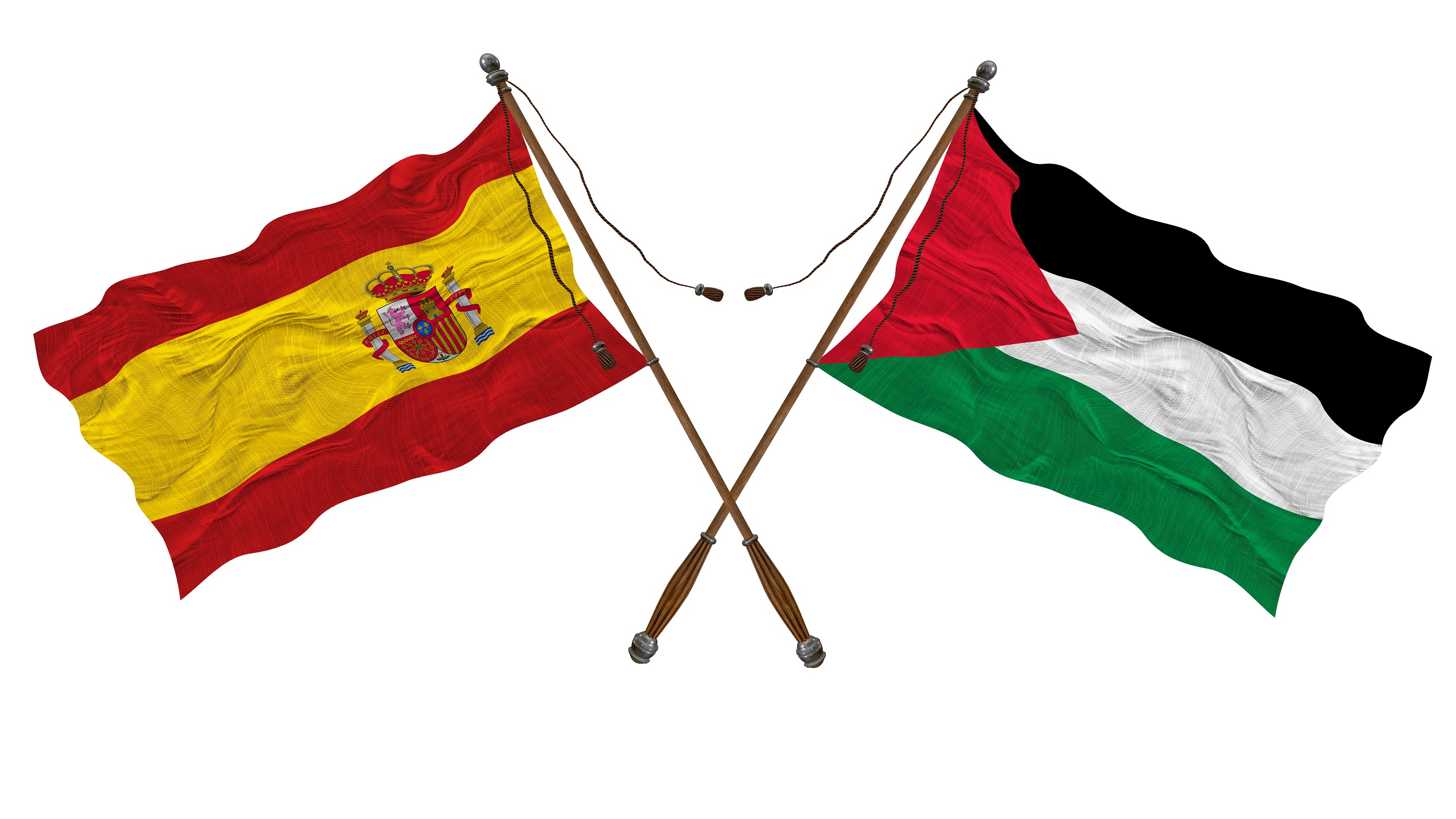Spain’s Promise To Recognize Palestinian Statehood by July Raises Eyebrows
PM Sánchez's statement comes at the same time as the PA's announcement of a request to become a full member state in the UN
During a Middle East tour this week, Spanish Prime Minister Pedro Sánchez said that Spain would officially recognize Palestinian statehood by July. Reports from Spanish media outlets, such as state news agency EFE and newspapers El Pais and La Vanguardia, cited Sánchez’s informal remarks made to the press corps in Amman, Jordan, during the initial leg of his visits to Jordan, Qatar, and Saudi Arabia. However, experts believe that Spanish recognition of a Palestinian state will not necessarily draw tangible outcomes in the geopolitical arena.
Spain’s position as a geopolitical power is minimal, even in the EU
“In real geopolitics, it doesn’t change anything. Spain’s position as a geopolitical power is minimal, even in the EU,” Cyril Widdershoven, a geopolitical and international oil and gas market specialist told The Media Line.
Prime Minister Sánchez was cited as saying that Madrid’s recognition of Palestine as a state will be followed by what he called “a critical mass” of countries.
Dr. Omer Dostri, a researcher at the Jerusalem Institute for Strategy and Security and an expert on national security and military strategy, told The Media Line that other countries may follow Spain’s lead due to the images coming from Gaza.
However, Widdershoven doesn’t expect many other European countries to follow suit given that European governments have shown an alliance with Israel, and politics in the continent are increasingly leaning to the right.
The collapse of Hamas rule in Gaza could increase this likelihood, as the international community sees it as an opportunity to advance the two-state solution for two peoples
Dostri highlighted that the possibility of a Palestinian state becomes more viable with the dismantling of Hamas as the Gaza Strip’s ruler. “Paradoxically, the collapse of Hamas rule in Gaza could increase this likelihood, as the international community sees it as an opportunity to advance the two-state solution for two peoples.”
Since 2007, following the Hamas-Fatah conflict that took place in the Gaza Strip, the Palestinian people fell under the governance of two different entities: Hamas ruled in the Gaza Strip while the Palestinian Authority (PA) ruled in the West Bank, presenting challenges to the possibility of statehood. The Spanish-expected recognition of a Palestinian state likely intends to place the PA as the government of such a country.
However, Dostri added that while some countries have recognized the Palestinian entity as a state in the past, true recognition hinges on acknowledgment by the UN Security Council and the Palestinian entity’s effective exercise of sovereignty, neither of which has been fully realized.
Sánchez’s announcement coincides with Riyad Mansour, the PA’s representative to the UN, informing Reuters on Monday of the PA’s intention to seek full UN membership at the Security Council. However, this effort faces a hurdle as the United States, a strong ally of Israel, holds veto power within the Council. Mansour revealed that a previous PA application for full membership in 2011 remained pending, as the 15-member council never reached a formal decision, as reported by Reuters.
Despite Mansour’s statement, Malta, which is acting as president of the UN Security Council in April, said no formal request had been submitted.
Hasan Alhasan, senior research fellow for Middle East Policy at the International Institute for Strategic Studies (IISS) in Bahrain, says that a broader international recognition of a Palestinian state is woefully overdue. However, he told The Media Line that he sees irony in “proceeding to recognize a Palestinian state just when the possibility of establishing one on the ground has become almost nonexistent.”
Alhasan argued that details of a future Palestinian state, such as who will take the government seats, should not be discussed until a cease-fire is reached. “There’s a danger of getting too bogged down in the details of a hypothetical Palestinian state under the incompetent and unpopular leadership of the PA when the immediate international priority is to secure an immediate cease-fire that puts an end to Israel’s atrocities in Gaza and violence in the West Bank,” he said.
According to Dostri, there was strategic reasoning behind the Spanish prime minister’s choice of timing to recognize a Palestinian state by July: “Spain may be considering the possibility that the war in Gaza will conclude by July, resulting in Hamas no longer controlling the territory,” he said, adding that this could pave the way for the PA to govern Gaza.
In terms of the PA’s timing in requesting to become a UN full member state as Sánchez gave his statement, Dostri believes that this might not be a coincidence: “It is likely that Spain coordinated and synchronized this step with the PA to maximize its impact,” he says.
These actions, he says, are aligned with the foreign policy of the Biden Administration, which aims to bolster the PA’s standing and exert pressure on Israel to accept its governance over Gaza.
“This could establish a contiguous state, albeit not territorially, which could be referred to as the State of Palestine,” he continued.


